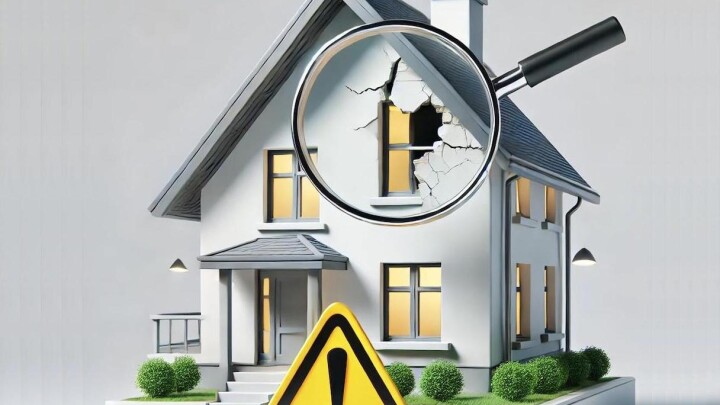Buying bank-owned homes: What are my options?
Buying bank-owned homes is an attractive option for those looking for affordable real estate opportunities. However, there are several options, and not all of them are suitable for everyone. In this post we show you the 5 most common modalities, for what type of buyer each of them would be and what risks they entail. From the most opportunistic, for qualified investors, to the most common options (where there is hardly any difference with the market price).
1. Judicial Auctions
In this case, we could not even say that it is a house "bought" from a bank, because it does not belong to the bank at this point. The process usually begins at a judicial auction stemming from a foreclosure due to a mortgage default. Here, the foreclosed properties are offered to the highest bidder. The property remains the property of the debtor at this point. Anyone can participate, but it is essential to know the status of the property and the legal formalities, as it is rarely possible to view the property before bidding.
The risks of an auction are innumerable and only professional experience can prevent you from squandering your savings and even your future income.
If you want to know more about these risks, click here.
Another important point to keep in mind: if you want to get a property through this method, it is essential that you have the money. You cannot ask for a mortgage for an auction. Forget it.
2. Assignment of Auction
If an auction is deserted or the maximum bid breaks the auction, the option of the auction assignment arises. The right to the property can be assigned to another person under the same conditions agreed at the auction. This process allows other interested buyers to acquire the property at a competitive price without having participated directly in the auction.
An assignment of auction carries as many risks as the auction itself. If you want to know more about them, click here.
If you want to know how an auction assignment works, click here.
Here's what not to do if you want to survive an auction sale.
You won't be able to finance a foreclosure either. Either you have the savings, or you forget about it.
3. Repossessed Properties
If the property does not find a buyer through the auction or foreclosure, the bank can apply to the auction management authority to purchase the property. These houses, known as repossessed, are managed directly by the banks. They are offered for sale, often at attractive prices, as the bank seeks to recover the value of the unpaid mortgage.
They are called repossessed because there are two transfers:
- from the foreclosed party to the bank, through the Adjudication Decree.
- from the bank to the new buyer, through a Public Deed before a notary.
This type of real estate always comes out at a higher price than if we had acquired it through the assignment of auction. The main reasons are:
- when having two transmissions, the bank pays the ITP in the first transmission and the buyer pays it in the second one.
- Asset management costs when the asset becomes part of the bank's real estate portfolio.
- Marketing, sales and commission costs.
It is common for banks to put this type of asset on the market without even having done due diligence on it (we will assume ignorance and not bad faith).
But the reality is that they may be squatted, occupied (with rights), have preferential or hidden charges, etc.
It is necessary to have enough legal and technical knowledge to succeed in this type of sale and purchase.
Whether or not they will finance this type of property will be a good indicator of the risk involved in this type of operation.
4. Direct Bank Sale
These are the properties that became the property of the bank in the debt restructuring processes of the former savings banks, foreclosures to professional developers and other similar agents during the 2008 crisis.
The most common risks of this type of housing can be of two types:
- Constructive: in many cases these are homes that were never occupied, or even unfinished. Therefore, a technical inspection before the purchase could save you a lot of economic problems and future headaches.
- Urban planning: in other cases, the houses were not even built with the proper permits or, even worse, they were built on the basis of urban plans that were later annulled. Be careful with this because the house could have an open file, which paralyzes the prescription period, and the new owner could be the new responsible for restoring the existing legality.
5. Properties Managed by Investment Funds
In some cases, banks sell large portfolios of foreclosed properties to investment funds. These funds, in turn, manage the sale of the properties, often at below-market prices. Although the properties do not belong directly to the bank, the bank acts as an intermediary in their marketing.
These are known as servicers. The great opportunities ended in 2008. Now it is difficult to find interesting things, unless you move to an area with low demand and you are lucky enough to find one of these properties.
Why Buy a Bank Owned Home?
Buying a bank-owned house has many advantages, from reduced prices to the possibility of obtaining preferential financing conditions. However, a thorough inspection is essential to ensure that the property has no hidden problems.
Don't risk buying a property without knowing its true condition. Opportunities at auctions, foreclosures or repossessed properties may seem irresistible, but behind a good offer may hide major structural or maintenance problems.
At Valido Home, we offer you an exhaustive analysis of the property so that you can make the best decision, without unpleasant surprises.
Protect your investment before signing. Contact us for a technical inspection and ensure a safe purchase, leave us your details and we will advise you without obligation!

Miguel S. Moreira
Miguel is a trained architect and building engineer with a ample experience in the real estate sector. He is the co-founder of Valido Home and loves to inform about the risks involved in purchasing property in Spain.




